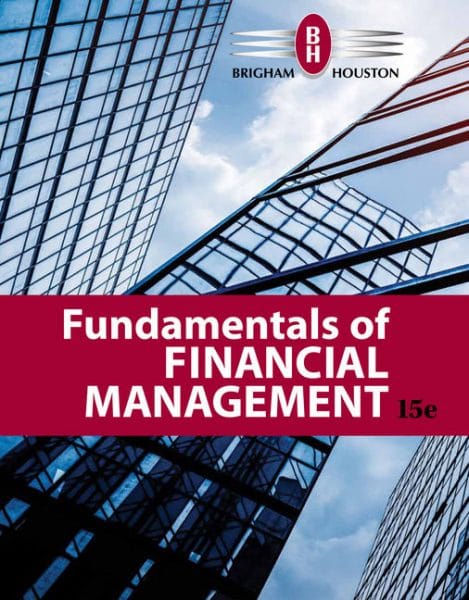3 top finance textbooks share the same home – UF’s Warrington College of Business
What do some of the world’s leading finance textbooks have in common?
Besides critical lessons on topics ranging from financial management to investments to real estate valuation and a majority of the market share on academic finance literature, these textbooks also share a birthplace – the University of Florida Warrington College of Business.
Warrington’s Eugene F. Brigham Finance, Insurance and Real Estate Department is home to not one, not two, but three of the leading finance textbooks and their authors, including Eugene Brigham, Joel Houston, Bradford Jordan, Wayne Archer and David Ling.

Eugene Brigham and Joel Houston’s Fundamentals of Financial Management.
“Beyond their textbooks having a significant educational and professional impact on our students and students internationally, these faculty have been first rate colleagues whose impact through their texts, teaching, research, and collaboration has also helped to significantly increase the reputation of our department and the Warrington College of Business,” said Andy Naranjo, John B. Hall Professor of Finance and Chair of the Eugene F. Brigham Finance, Insurance and Real Estate Department. “We are proud to have these excellent authors in our department.”
Fundamentals of Financial Management, now in its 15th edition, is authored by Professor Emeritus Eugene F. Brigham and Joel Houston, Eugene F. Brigham Chair in Finance. It was originally released in 1978 and is one of 11 textbooks by Brigham.
“People claim it’s being smart, but I think it’s luck,” Brigham said of his bevy of successful textbooks.
In fact, the Brigham family of finance textbooks are all best sellers, are used at over 1,000 universities in the United States alone and have been translated into 11 languages.
As Houston notes, Brigham has cracked the code on how to write a best-seller, and he’s proud to have learned the formula of “painstaking attention to detail, exacting knowledge of the latest in business theory and practice, and a focus on clarity and simplification.”

Brad Jordan and his textbook, Fundamentals of Corporate Finance.
Like Brigham, Bradford “Brad” Jordan (BSBA ’79, Ph.D. ’84) has a significant collection of textbooks to his name. His five distinct textbooks, including Corporate Finance, Fundamentals of Corporate Finance, Essentials of Corporate Finance, Fundamentals of Investments: Valuation and Management and Corporate Finance: Core Principles and Applications, have been published in multiple editions and adaptations. In total, the various editions and adaptations of his books make Jordan an author of about 80 textbooks.
Out of his many textbooks, Jordan’s Fundamentals of Corporate Finance is his most popular. Recently, it celebrated its 30th birthday and was released in its 13th edition. How does a textbook make it 30 years, though?
“When I wrote it, I thought finance could be made more accessible to a wider audience by appealing to everyday intuition and writing in a relaxed, reader-focused tone,” said Jordan, who is currently a visiting scholar at Warrington. “It worked!”
As a visiting scholar, Jordan’s days are filled with new research related to his current topics, corporate governance and asset management, and, unsurprisingly, he is also working on another textbook. While this new textbook’s topic is top secret, if it’s like the others that have come before it, it’s bound to be a success. They key to doing so, Jordan notes, is all in the entrepreneurial effort.

Wayne Archer and David Ling’s Real Estate Principles: A Value Approach.
“Like any new product, it won’t succeed unless you give the customer a genuinely meaningful reason to switch to you,” he said.
Wayne Archer and David Ling are the authors of the No. 1 Real Estate Principles: A Value Approach, now in its seventh edition. Over their nearly two-decade partnership as co-authors, Archer and Ling have taught countless students how value is central to virtually all real estate decision-making in their textbook. Despite Archer’s retirement after more than 50 years of teaching real estate at the Warrington College of Business, he will continue to partner with Ling on the textbook.
A previous text from Warrington’s Professor Emeritus Hal Smith was an important influence on Archer and Ling’s book. The authors are proud that their 18-year collaboration has led the book to be the leading publication in the field, having been adopted by over 250 universities.
“People don’t keep books much around anymore but seems like people keep ours around,” Archer said. “We’ve gotten some very nice compliments on it from people we respect.”




